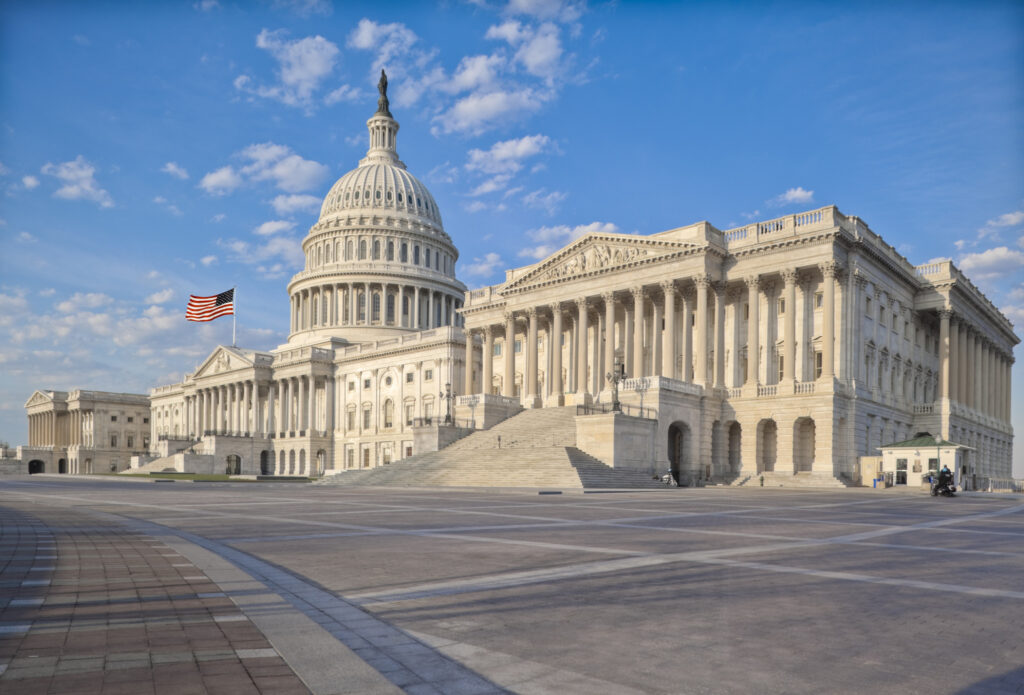U.S. bill promises billions for highways, would delay HOS rule
WASHINGTON, D.C. – A U.S. infrastructure bill unveiled yesterday would fund highways and clean transportation efforts, but also delay a final hours of service rule, and push for a rulemaking on driver detention and changes to the CSA safety rating program.
The House Committee on Transportation and Infrastructure introduced a US $500-billion, five-year infrastructure bill, proposing to spend nearly double last year’s US $287-billion Senate version, which at the time was described as “the largest highway legislation in history.”
Highways would be targeted with $319 billion, prioritizing fixing broken and outdated infrastructure, including 47,000 structurally-deficient bridges.

The House’s Investing in a New Vision for the Environment and Surface Transportation in America (INVEST in America) Act would measure state-by-state greenhouse gas emissions, offering incentives for reducing carbon pollution, and boosting the funding for charging stations and fueling options used by electric and zero-emission vehicles.
It includes $4.6 billion over five years for the U.S. Federal Motor Carrier Safety Administration, with part of that used for a new Large Truck Crash Causal Factors Study.
Opinions about the bill
The Owner-Operator Independent Drivers Association (OOIDA) released a statement supporting provisions such as increased funding for highway construction, US $250 million for truck parking projects, provisions that will help limit excessive detention time and predatory lease-to-own schemes, new restrictions on tolling, and analysis of H-1B Visa use within the trucking industry.
But the association said it was concerned about provisions that would return CSA scores to the public before the system is perfected, and delay implementing FMCSA’s final hours of service rule that was published June 1 and scheduled to take hold in late September.
The bill would require the Transportation Department to delay the hours of service rule until 60 days after submitting a “comprehensive review of hours of service rules and the impacts of waivers, exemptions, and other allowances that limit the applicability of such rules.” The bill would require that report to be completed in no more than 18 months and published in the Federal Register for public comment.
The bill also directs the Federal Motor Carrier Safety Administration to change its personal conveyance guidance to establish specific mileage and/or time limits.
It calls for the department to initiate a rulemaking on a regulation that would establish limits on the amount of time a driver can be detained by a shipper or receiver without compensation, too.
American Trucking Associations President and CEO Chris Spear said in a statement, “This draft legislation contains significant investment in our country’s roads and bridges and approaches highway and truck safety from a data-driven perspective. And while we may not agree on every provision therein, this is a real and commendable step on the part of the committee to advance the process in the House and ultimately arrive at a negotiable solution with the Senate.”
Partisan Politics
The bill drew swift reaction from House Republicans and other critics saying a more bipartisan approach is needed.
Committee on Transportation and Infrastructure Ranking Member Sam Graves, Subcommittee on Highways and Transit Ranking Member Rodney Davis, and Subcommittee on Railroads, Pipelines, and Hazardous Materials Ranking Member Rick Crawford (R-AR) made a joint statement, saying the bill “lacks critical flexibility for the states, its outsized funding increases for urban areas will leave rural America even further behind, and numerous new green mandates and extreme progressive goals are woven throughout the fabric of new and existing core programs.”
American Association of State Highway and Transportation Officials executive director Jim Tymon praised the committee for taking the first step in reauthorizing surface transportation programs before they expire this fall.
“Transportation has traditionally been a bipartisan issue, and both sides of the aisle will have to work together to get a surface transportation bill over the finish line,” he said. “We remain encouraged that infrastructure appears to be a priority in both the House and the Senate and we look forward to working with Congressional leaders to enact legislation before the expiration of the FAST Act that will fully fund the highway trust fund and ensure the nation’s transportation system remains the backbone to economic vitality and overall quality of life.”
“With historic unemployment, tremendous unmet infrastructure needs, and less than four months before the expiration of surface transportation programs, this is no time for another partisan approach to infrastructure,” said Neil Bradley, U.S. Chamber of Commerce executive vice-president and chief policy officer.
The INVEST in America Act is highly unlikely to make it into law in its current form. It first must be passed by the full House, and then the House and Senate must work on creating a compromise bill before it can go to the president’s desk for a signature.
In addition, regardless of the form of the final highway reauthorization bill, Congress must still determine how to pay for it.
- This article is offered through a content sharing agreement with Heavy-Duty Trucking Magazine.
Have your say
This is a moderated forum. Comments will no longer be published unless they are accompanied by a first and last name and a verifiable email address. (Today's Trucking will not publish or share the email address.) Profane language and content deemed to be libelous, racist, or threatening in nature will not be published under any circumstances.